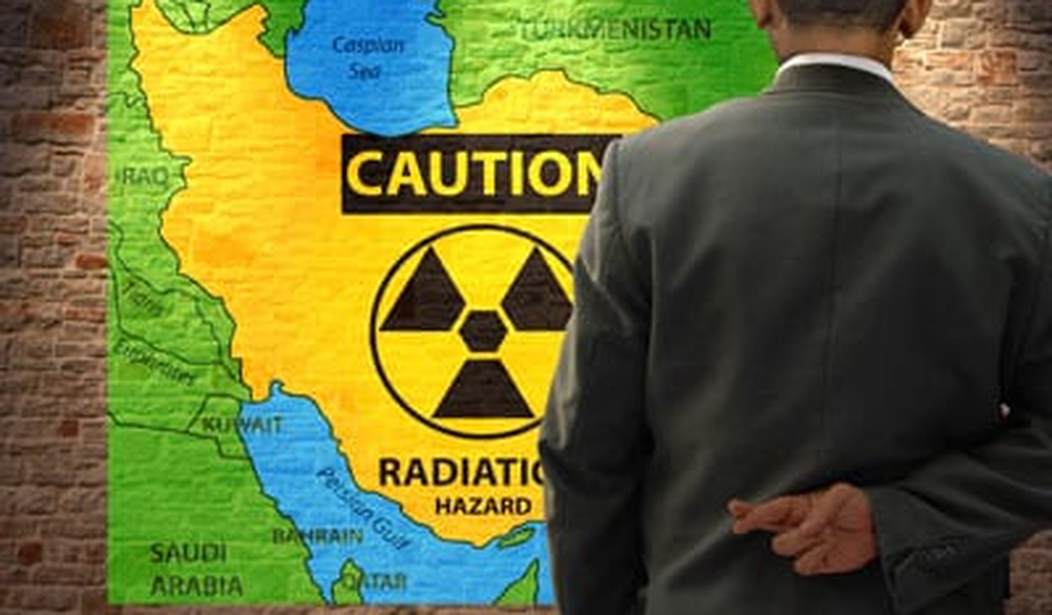Ransoming hostages is nothing new, indeed it’s routine for most countries and happens with increasing frequency for the U.S. government and American corporations. The current minifuror over the “swap” of 7 Iranian criminals (plus lifting sanctions on 14 others) for 5 American hostages is based on the entirely understandable desire to avoid the sinking feeling that comes when you do such a thing. But that sinking feeling may yet drive us to take this war seriously instead of playing our enemies’ games.
First, let’s review the bidding. We thought we knew about four Americans in the grip of the ayatollahs: the Marine, the priest, the journalist and the businessman. As it turned out, there were six, two of whom we’d never heard of. The businessman—Namazi—isn’t likely to get out soon, since the Iranians seem to believe he’s a real enemy, having taken the Revolutionary Guards to court for non-fulfillment of a natural gas deal with his Dubai company, and winning a big judgment. A billion or two. The Marine, the priest and the journalist are out, along with the two unknowns. Over here, we paid the ransom, in the form of the release or pardon of seven convicted or accused criminals, plus the removal of many Iranian names from the international no-fly list, plus more than a hundred billion in “sanctions relief.” And one will get you five that the bonus payment of 1.7 billion is part of the deal. That’s what the Iranians say, and their willingness to say it is a real change. Previously they had never publicly acknowledged their involvement in the hostage business; now they are bragging about it.
Throughout the “nuclear” negotiations, my Iranian friends told me how amazed Rouhani and Zarif were as the Americans made offer after generous offer if only the men in turbans would agree to a deal. Here, have some interest on your impounded money. There, have some of your espionage agents. Not to worry about IAEA, we’ll handle that.
Their account is rather different from the standard version, according to which we were snookered by the brilliant, cunning Iranians. Their version is that we kept offering more and more, surprise after surprise. What did the Iranians want? Money, and the release of their agents in America. But mostly money. As much as they could get. They certainly didn’t want détente, which is what I believe Obama has wanted since 2008. The Iranians would not ever sign an agreement with us (to this day, neither we nor the Iranians have signed anything) as per Khamenei’s orders. But he was happy to get money, some billions of which will go to his personal accounts. He’s also happy to have an American president follow Tehran’s guidance on most every aspect of foreign policy, whether it’s about Assad or Israel or Saudi Arabia.
I expect that Khamenei will renounce the deal once he gets the money. And then we will make new offers.
It’s hard to believe Obama et. al. when they say that the hostage negotiations were entirely separate from The Deal. In the New Yorker, Robin Wright shows how carefully the White House coordinated the swap with the Deal launch.
We’ve been making hostage deals with the Iranians and their proxies for years. From the American students seized on a hike (probably ransomed courtesy of the Omanis), to Bowe Bergdahl, who wandered off to the Taliban from his Army base (swapped for 4 Talibani and a member of the Haqqani network), to an Iranian-American in prison mysteriously released from prison in California (probably swapped for an American CIA official held by the Iranians), we’ve had plenty of experience (including Iranian back channels) with these sordid affairs.
How many other Americans are being held in Iran? We—we the public—don’t know. In this latest swap, we suddenly discovered two previously unknown hostages, one of whom curiously declined to join the others on the official aircraft. Perhaps there are others, including the three seized in Baghdad almost contemporaneously with the swap.
What about Levinson, the former FBI official? Several years ago I was told he’d died in an Iranian prison, and I so informed the Bureau. I don’t know any details, except that my Iranian source insisted that they had not murdered him. I still hope it’s false, but the collateral evidence suggests it was an accurate report.
In short, the hostage question has been an integral part of the US-Iran game all along. I have written that repeatedly, but, as in the pre-Iran/Contra period, no journalist has gotten to the bottom of it. In this regard, it is of a piece with the reporting of the larger negotiations. All these stories about a sudden start to serious negotiations are mistaken, based on my own research. Obama opened the first back channel to Tehran in 2008, when he sent a person to Iran to start the dialogue. And one key person in this story never appears: Valerie Jarrett. In the recent past she has personally told some of the Middle East’s most important figures that she is in charge of the “Iran account,” and I don’t think she made it up. If we want to understand the story fully, we need to know what her mission(s) was (were).
But we don’t. All we know is that the president is extraordinarily generous to the Iranians, and he behaves like a man who passionately wants a grand alliance with the ayatollahs.
One more thing: If you don’t want to deal for hostages, you’d better work to get rid of the regime of the Islamic Republic. They take hostages whenever they can, and they’re not going to change now.
They’re not going to stop working on nukes, either. Just in case you wanted to know.








Join the conversation as a VIP Member